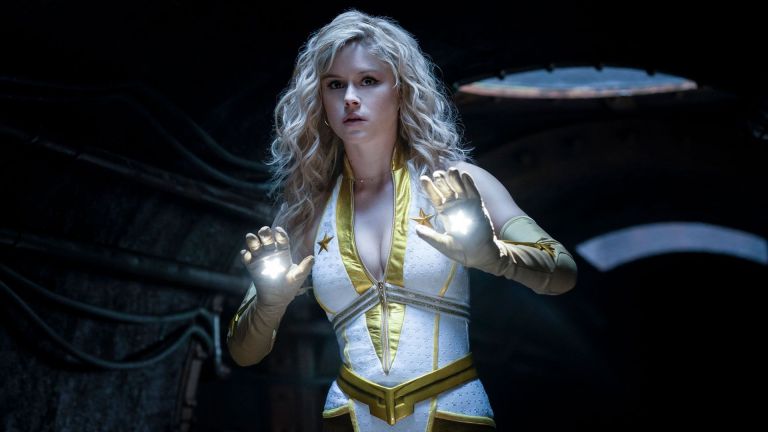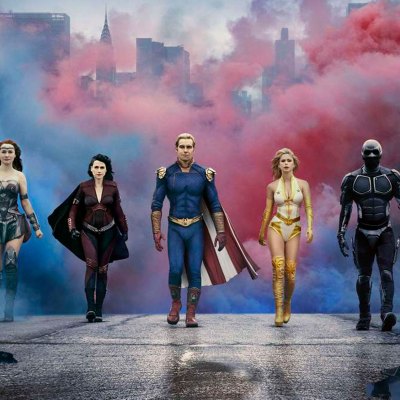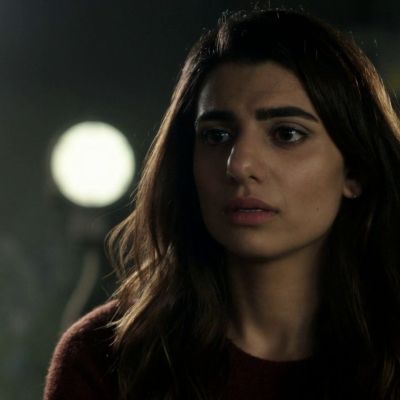The Boys Season 2 Succeeds By Allowing Its Female Characters to Shine
The Boys season 2 shows how girls really do get it done but not in a cynical, corporate fashion.

The following contains spoilers for The Boys season 2.
On the surface, Amazon’s popular superhero series The Boys is a dark inversion of the Marvel Cinematic Universe, a profane, uber-violent world in which corruption, blackmail, and corporate greed rule the day rather than truth, justice, and the American way. Despite their super status, the show’s heroes are often depicted as selfish, morally reprehensible, and obsessed with their fame rather than interested in doing much in the way of saving the world.
Although the show certainly has moments where it feels like little more than a parody of our current superhero obsessed culture, The Boys is smart and insightful as a whole, tackling complicated and messy issues like the rise of extremism in America, the perils of celebrity culture, the risks of unchecked capitalism and more.
So, it probably shouldn’t come as such a shock when it’s the series’ women who actually turn out to be its best characters. And yet, in a world where popular superhero enterprises like the MCU drag their feet about even including – let alone centering – female characters, maybe it really does take a show called The Boys to illustrate how very necessary women are to this genre.
While The Boys’ central conflicts are ostensibly positioned around and among men like Homelander, Butcher, and Hughie, it’s the series’ women who get the strongest, most complete narrative arcs in season 2. From Starlight’s story of quiet but determined resistance and Queen Maeve’s decision to stand up to Homelander to Kimiko’s embrace of her voice, the women of The Boys are all actively reclaiming their own stories and making a place for themselves within the world of the show.
Even newcomer Stormfront, who is revealed to be a literal Nazi during the back half of the second season, is a more well-rounded character than several of the male Seven members, and the outspoken way she refuses to participate in or be patronized by the sexist system global megacorporation Vought International has built to exploit its female heroes is admirable, even when she herself is anything but. (Though, to be fair, it’s certainly possible that Stormfront’s aggressive feminism is as much of an act as the rest of her persona and she’s actually a secret misogynist. But since she generally doesn’t treat women with the same open disdain as she does people of color, it seems less likely.)
At Vought, female supes are unfortunately seen as little more than another commodity to exploit. The “Girls Get it Done” campaign that’s launched upon Stormfront’s arrival purports to celebrate girl power, but relies upon shallow catchphrases and leans into sexist archetypes by insisting that feminist strength comes from a skimpy outfit and thigh-high stiletto boots. The female heroes are frequently condescended to by their male colleagues, and rarely given similar levels of agency or control over their own lives. (See also: Vought’s decision to brand Maeve as a lesbian, rather than truthfully label her as bisexual, in an attempt to sell more specially licensed rainbow Pride burgers.)
Thankfully, The Boys not only recognizes the value in the stories of its female heroes, it relies on them to give the season’s overall arc some much-needed emotional depth.
It’s not an accident that most of season 2’s best moments either come about because of or directly feature female characters. It’s hard to think of a more satisfying sequence than the moment in which Maeve, Kimiko, and Starlight join forces to beat the crap out of Stormfront, but it’s the quieter character arcs that do the heavy lifting of interrogating what being a hero really means.
The most obvious example of this necessary narrative expansion is Kimiko, a character who, in the comics this series is based on, is simply known as “The Female” and has little in the way of interiority. The television version of The Boys not only gives her a name and a history but decides that Kimiko’s story is one that’s worth telling in its own right. The introduction of her brother Kenji and the revelation of their shared torture at the hands of the Shining Light Liberation Army give Kimiko a much-needed backstory and his subsequent murder by Stormfront just adds to her complicated reasons for wanting to take Vought down. (Which, by the way, have nothing to do with the pack of men she’s currently running around with.)
On the supe side of things, Starlight gets what is probably the most complete narrative of the season, growing into her role as both a hero and a leader by doing precisely what those kinds of people are supposed to do: Fight injustice. Her quiet commitment to doing what’s right in a world that consistently rewards those who look the other way sees her make hard choices – she must blackmail a former church friend to gain access to a sample of Compound V – and difficult compromises, but always with a larger goal in mind.
Her small acts of defiance feel both hopeful and thrilling in the wake of Homelander’s consistently domineering awfulness, and you can’t help but see her as the show’s best example of everything a superhero – in this universe or any other – is supposed to be. Her decision to remain in Vought Tower and to work with a man who tried to kill her in the name of being part of the solution to what’s wrong in the world is an extremely exciting development in a universe where superheroes can barely be counted on to save the day when asked. And since Queen Maeve also seems to be on a slightly more heroic path by the close of the season, Starlight may not be alone on the side of right next season
Back in season 1, Maeve is a cynical, world-weary veteran hero, beaten down by years’ worth of struggle within the Seven and at Vought generally. Like Starlight, she’s also experienced harassment and exploitation, but she’s grown tired of fighting a system that constantly treats her as a second-class citizen even as it touts her very presence as progress. Maeve has made so many compromises at Vought that she’s become the sort of woman that lets a plane full of innocent people die screaming because standing up to her team leader has become too much work.
Until it isn’t.
Maeve’s decision to finally to join Starlight’s cause – saving her from Black Noir, arriving just in time to face off with Stormfront, and blackmailing Homelander into leaving them all alone – feels like a choice that’s been years coming, and that could truly shake things up for both The Seven and The Boys itself. What does this group suddenly look like if it’s being led by two women (and, ugh, Homelander, I guess) but we all know who’d really be in charge there. How much good could they do? How much might they actually change things at Vought? The cover-up press conference that reinstates Starlight and closes the season suggests not much, but every rebellion starts with hope, right?


